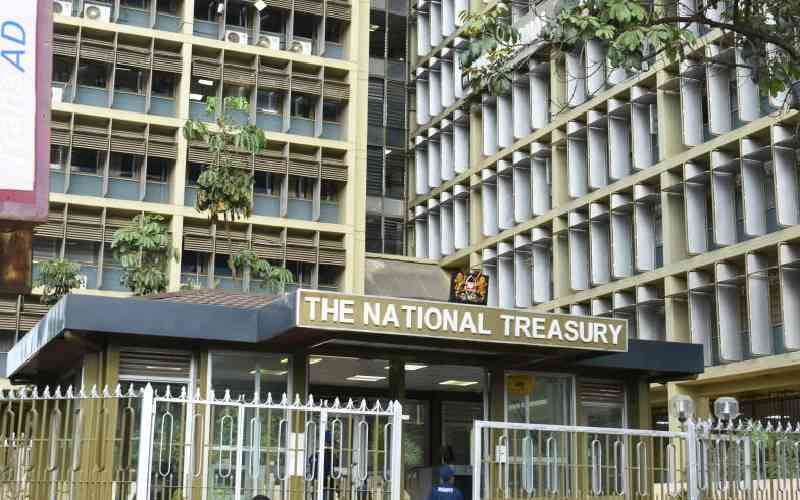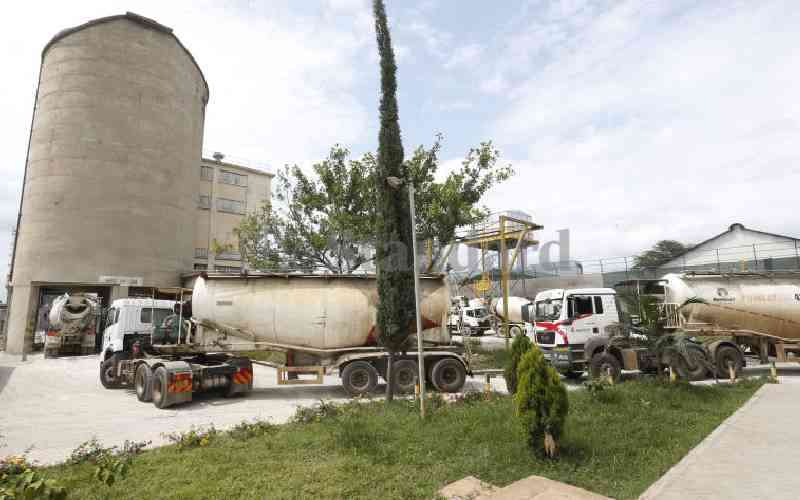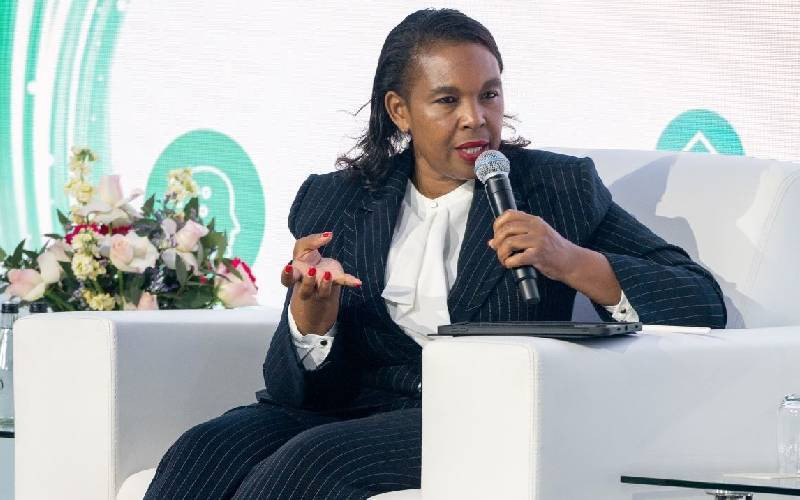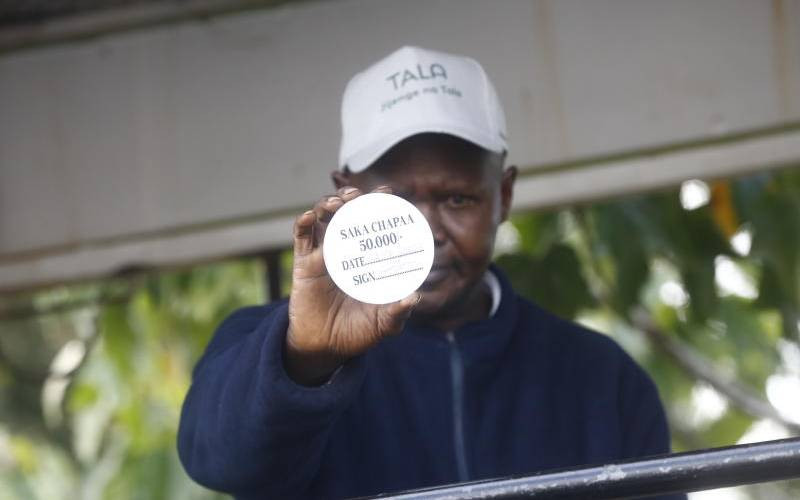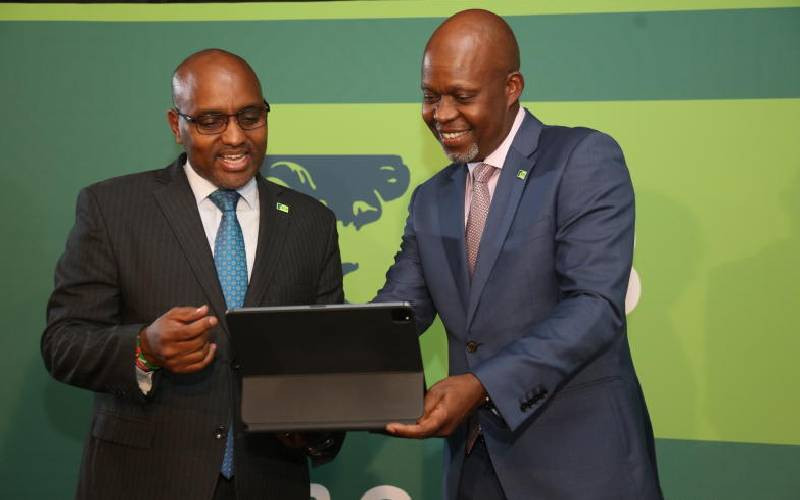
The taxman will from this week be able to spy on and collect transaction data from individuals, traders and companies in the country in real-time, tightening the noose on tax cheats.
This is after the Kenya Revenue Authority (KRA) launched a new President William Ruto government-backed software that has been at the core of mobilising value-added tax (VAT) revenues in other countries.
KRA reckons the annual VAT collection is expected to grow to Sh150 billion which is 7.5 per cent of the country's gross domestic product (GDP) when fully rolled out from the current annual VAT collection of four per cent to GDP.
Armed with the new electronic invoicing and reporting tool, KRA reckons it will be able to collect information without waiting for taxpayers to file, even at the point of a commercial transaction to make its own assessment of the tax due.
"The new system will improve compliance with VAT law through transparency and visibility of transactions subject to VAT," KRA Deputy Commissioner in charge of the Medium Taxpayers Office George Obel told Standard Business in an interview.
He said the system will introduce real-time transaction-level reporting of tax information directly to KRA.
"Information on transactions that are subject to VAT will be available to KRA at real-time or near real-time basis, therefore, increasing efficiency on collection," he said.
KRA yesterday asked all traders to procure new software to enable the shift to the reporting system.
"KRA informs the public of the commencement of phase two of the Tax Invoice Management System (eTIMs)," said KRA in a public notice.
"This phase will involve rolling out of the software version of the system to provide additional ways of transmitting electronic invoices to KRA on a real-time basis."
This is part of President William Ruto's new grand plan to broaden the country's tax base and raise revenue to enable him to deliver on his raft of rosy pledges over the next financial year.
The President for the first time in January alluded to this new system during a joint media interview with journalists at State House, Nairobi.
This week, KRA said the new system has visibility of all invoices issued on real-time or near real-time, hence allowing KRA to project and collect the correct taxes as they fall due.
"This system will also narrow the field for fictitious input VAT claims," said Mr Obel, adding the system will be rolled out on pilot phase with 201 taxpayers.
With the full rollout expected to commence from April 2023, KRA expects to onboard almost all eligible VAT-registered taxpayers yet to onboard the current TIMS.
"The law requires that all eligible VAT registered taxpayers on board TIMS/eTIMS. Not onboarding is an offence which can attract a penalty of upto Sh1 million," said Mr Obel.
Under the new system, anyone doing business in Kenya will need to provide real-time electronic filing of all invoices and transaction data on a sale, for instance, and tax reporting will be embedded into a traders' transaction workflow.
And in a reprieve for businesses who are already battling high production and doing business costs, the KRA announced the software to facilitate the new system will be provided to taxpayers at no additional cost.
"The government saw the need to support small and medium business which may have had costs challenges on onboarding," said Obel.
Taxpayers will under the deal have an option of using an online portal to issue tax invoices and have the same transmitted to KRA on a real-time basis.
Traders will also have the option of loading the application on their mobile phones through which they will issue tax invoices.
Businesses willing to continue with their current billing system will also get an application to integrate with the new system, said KRA.
"The system was ported from another partner state where the system has been at the core of their success in mobilizing VAT revenues. There were no purchase costs for the system other than minimal costs incurred on integration and customization," said Obel.
President Ruto earlier revealed that the government is on the home stretch of unveiling the tax system to ensure KRA collects most of the taxes due to government.
"We are installing a new tax system, which is going to drive the collection of value-added tax to between 90 and 97 per cent," said Ruto.
"Every government service where tax is payable will be collectable online. I will not wait for anybody to file a return at the end of the month. We will be paying taxes as we spend our money or as we do our businesses."
KRA, which has in recent years stepped up its adoption of technology to snoop on tax evaders, will under the new spying plan on business transactions embrace new advanced analytics and artificial intelligence (AI) applications to scrutinise enterprises, automatically spotting red flags and building evidence that can be used to levy higher assessments.
The new plan will help KRA move to seal revenue leaks and boost State coffers to enable Treasury to wean itself off reliance on public debt.
KRA already rolled out new internet-enabled electronic tax registers (ETRs) previously for all businesses with an annual turnover of at least Sh5 million and this is the system that will be integrated to the new software.
The ETRs are expected to relay real-time data on daily sales to the taxman.
Under the new system, KRA will receive sales and invoice data from all registered firms and traders daily in a fresh push to boost revenue collections and curb tax evasion.
The new technology will deepen the scrutiny of traders' transactions.
Traders will also be required to seek the taxman's permission to perform any other business the next day under the system, meaning incorrect or incomplete data logged the previous day could lock them out.
Ruto has given KRA a target of Sh3 trillion by the end of the next financial year and to double it by the end of his first term in 2027, noting that tax collection is currently below par.
"Beginning with William Ruto, everybody must pay tax. This is not the animal farm where some are more equal than others," Ruto said as he hinted there would be no sacred cows in the payment of tax.
The new administration has accused powerful officials and wealthy individuals and business families of reneging on their tax obligations due to their rich status.
Ruto plans to spend Sh3.64 trillion in the next financial year - the country's biggest budget so far.
The President's first budget to draw up and implement since taking office on September 13, 2022, is 10 per cent higher than the Sh3.3 trillion budget for the current financial year to June 2023, crafted in the last days of the Jubilee Administration and being implemented by Ruto's government.
Ruto is banking on increased tax collections by KRA to reduce the need for borrowing and bridge the budget deficit that it estimates will be at Sh695.2 billion during the year.
KRA is expected to collect Sh2.57 trillion in 2023-24the financial year, which is 17 per cent more than the Sh2.19 trillion it is projected to collect over the current financial year to June 2023.
 The Standard Group Plc is a multi-media organization with investments in media platforms spanning newspaper print
operations, television, radio broadcasting, digital and online services. The Standard Group is recognized as a
leading multi-media house in Kenya with a key influence in matters of national and international interest.
The Standard Group Plc is a multi-media organization with investments in media platforms spanning newspaper print
operations, television, radio broadcasting, digital and online services. The Standard Group is recognized as a
leading multi-media house in Kenya with a key influence in matters of national and international interest.

